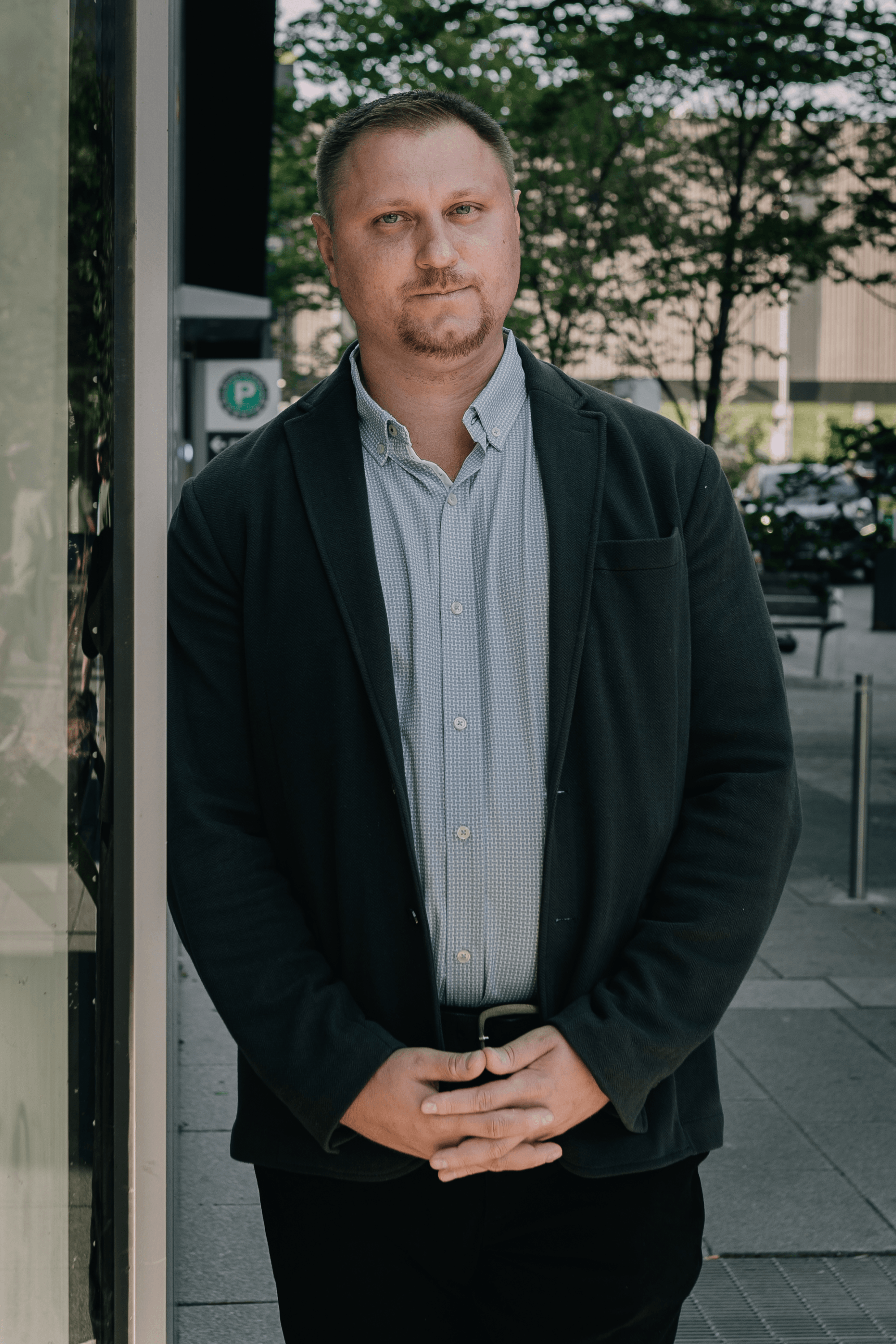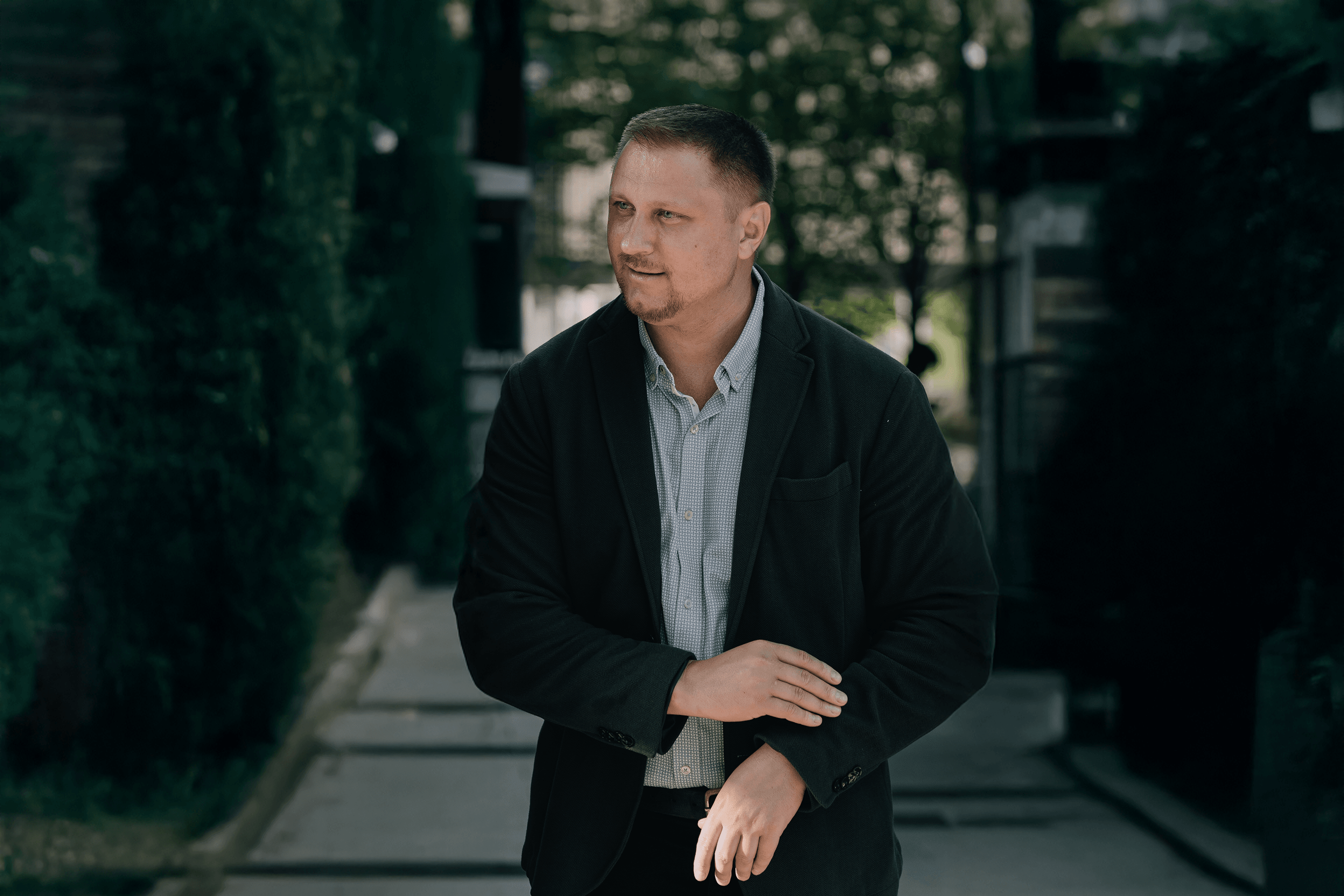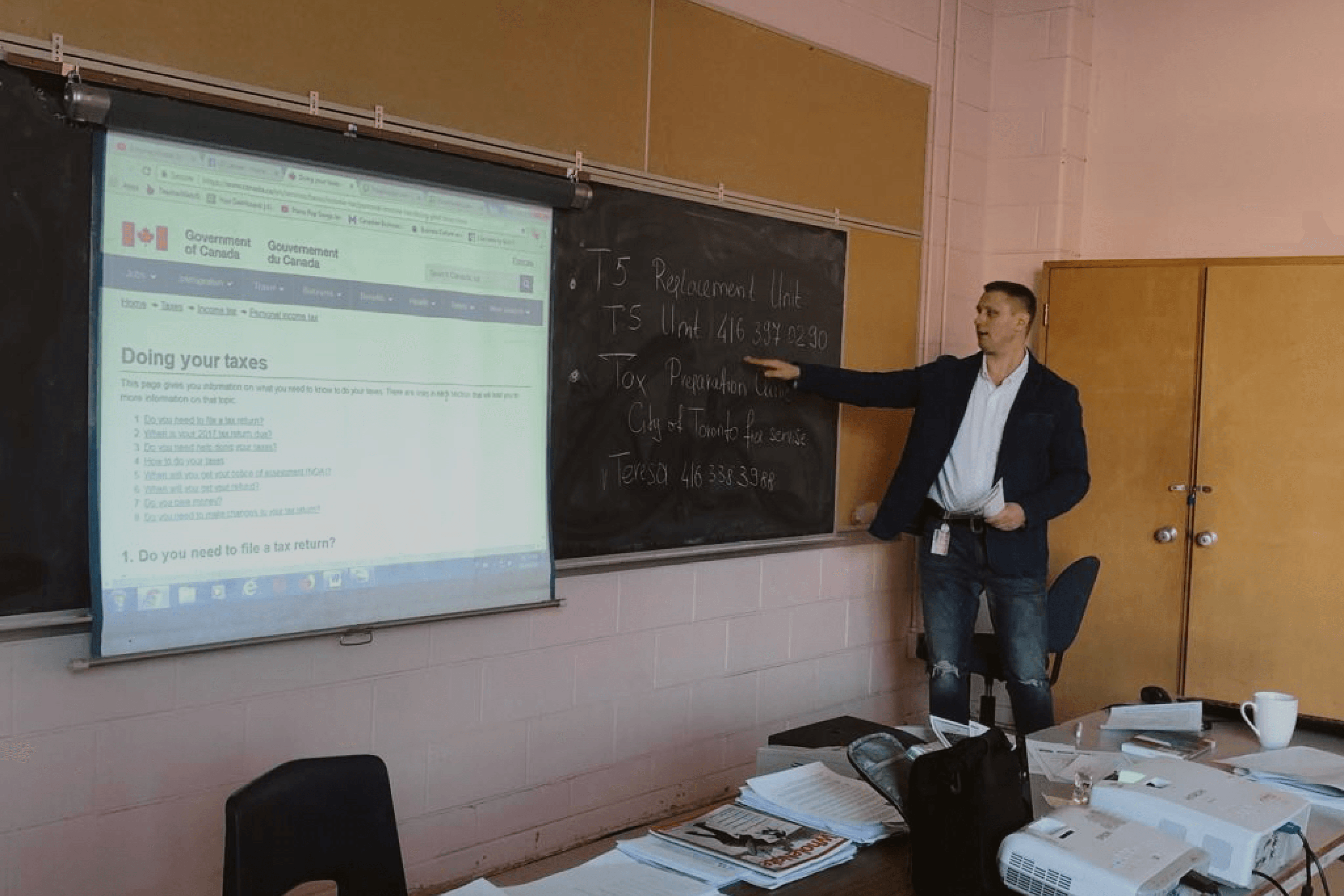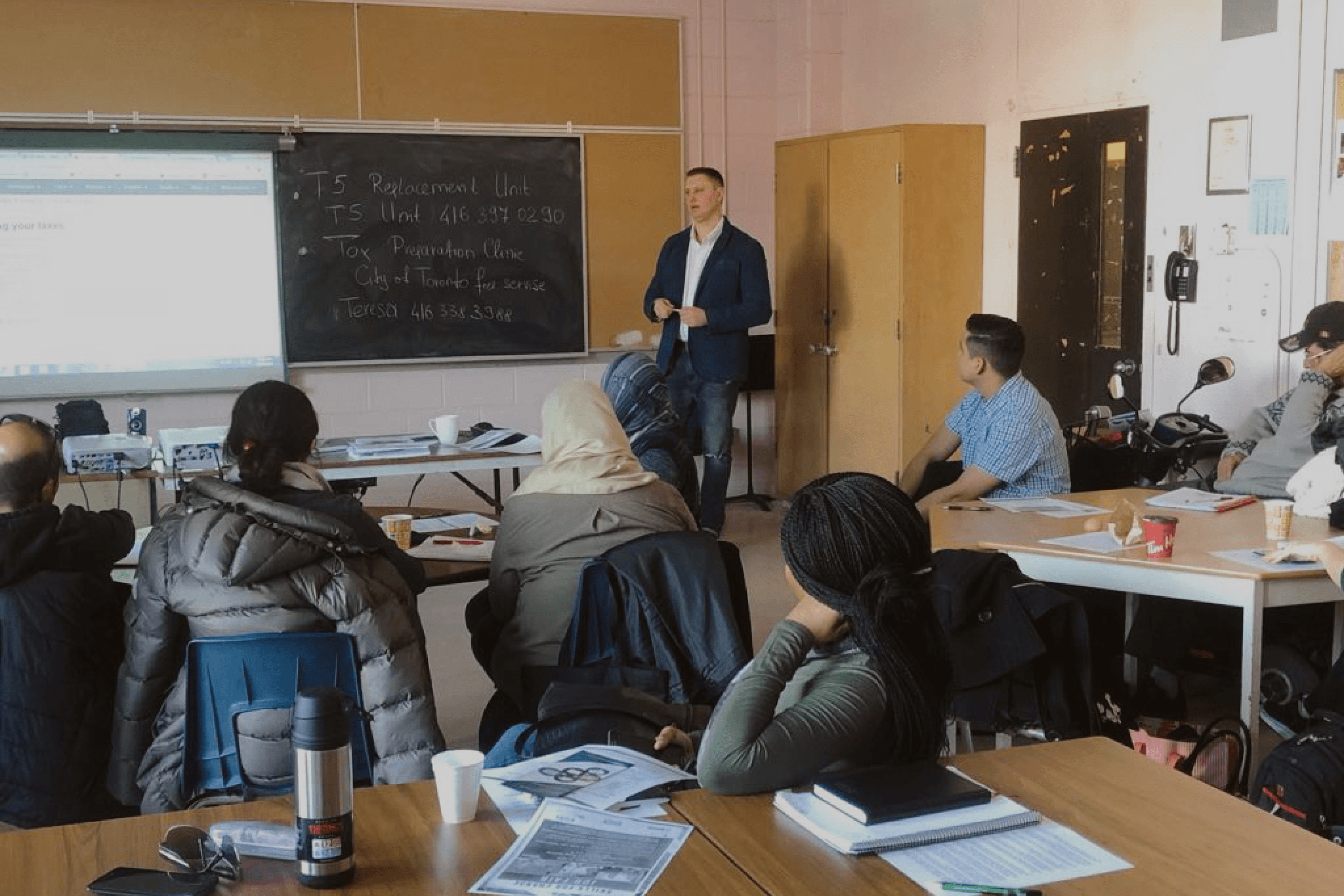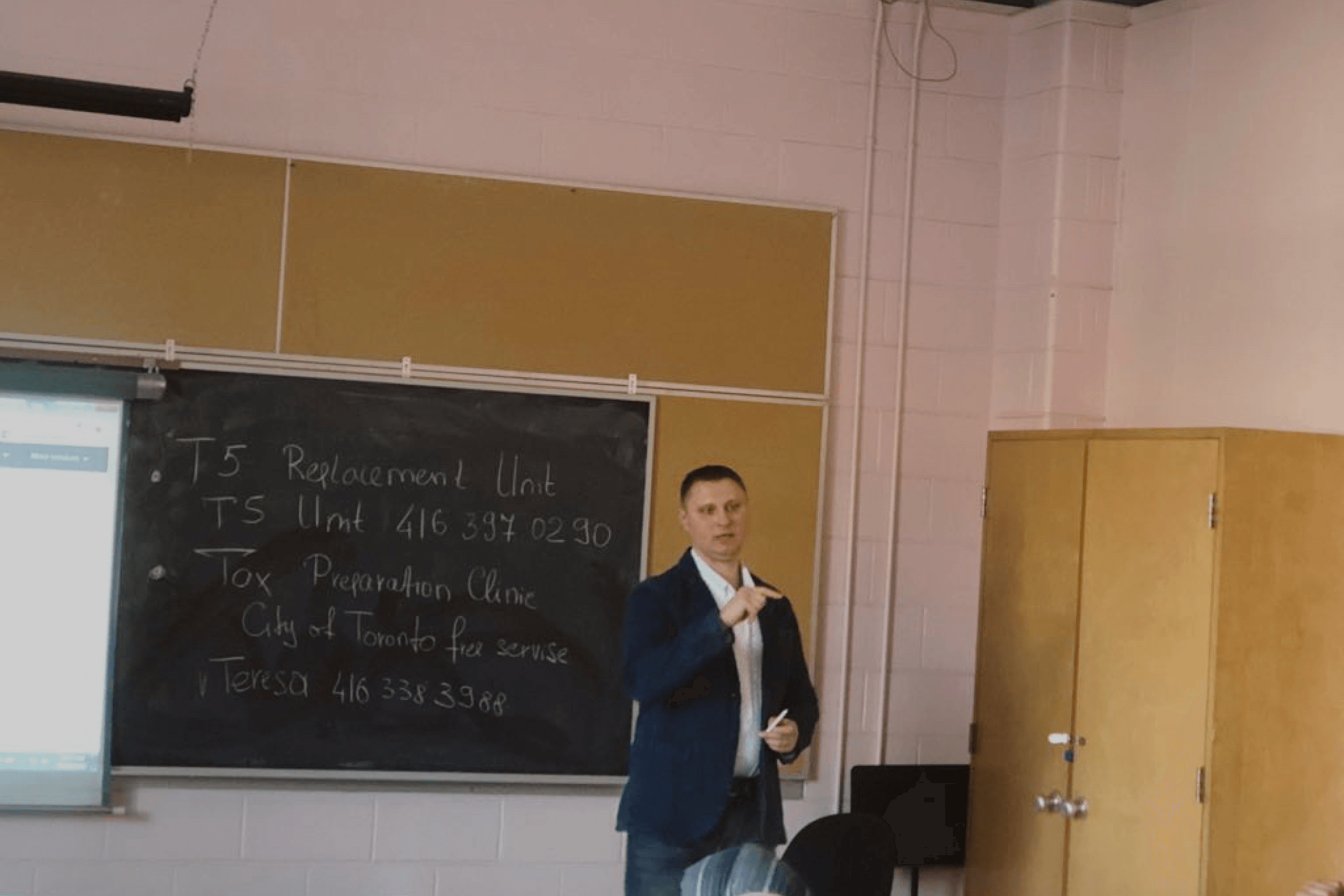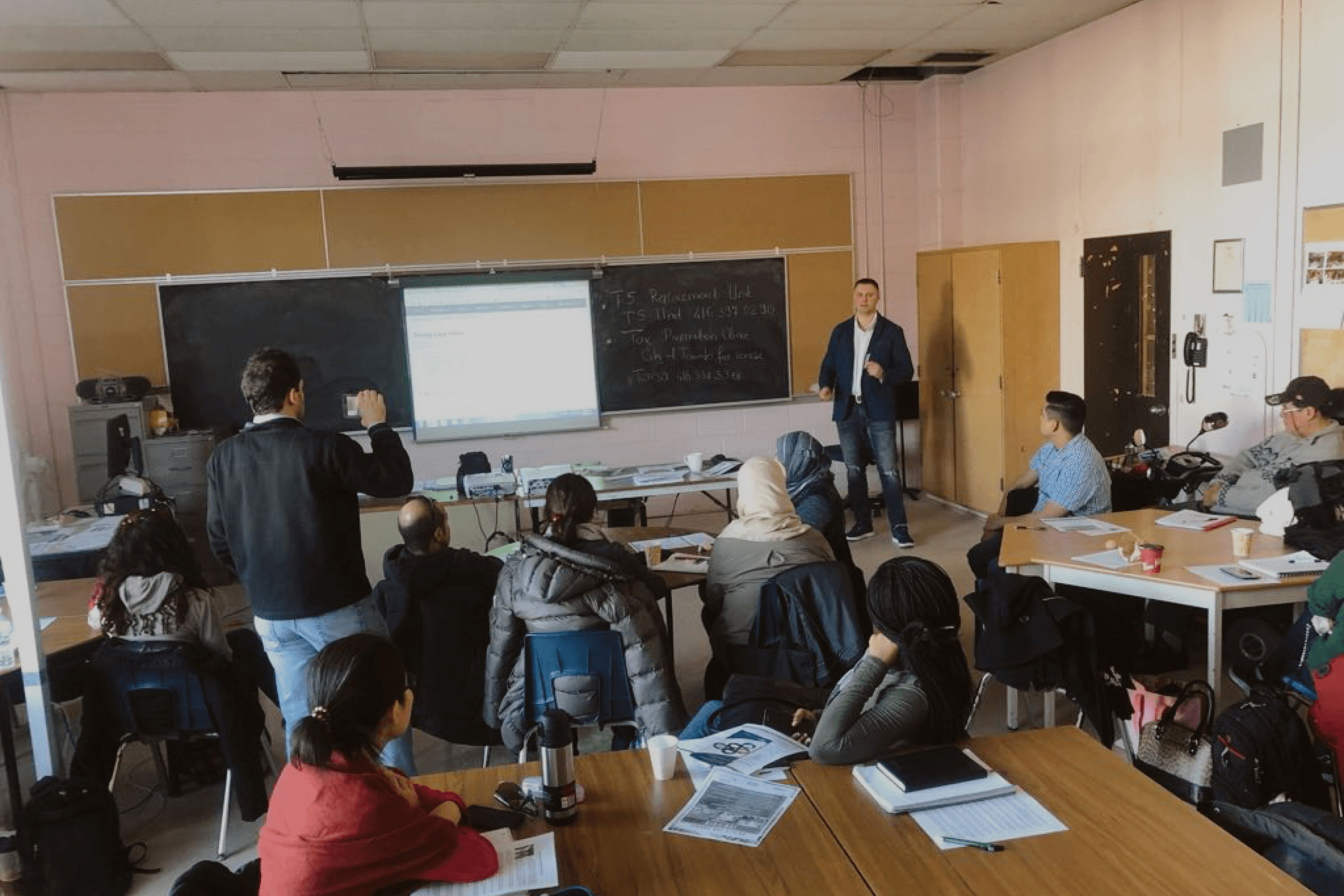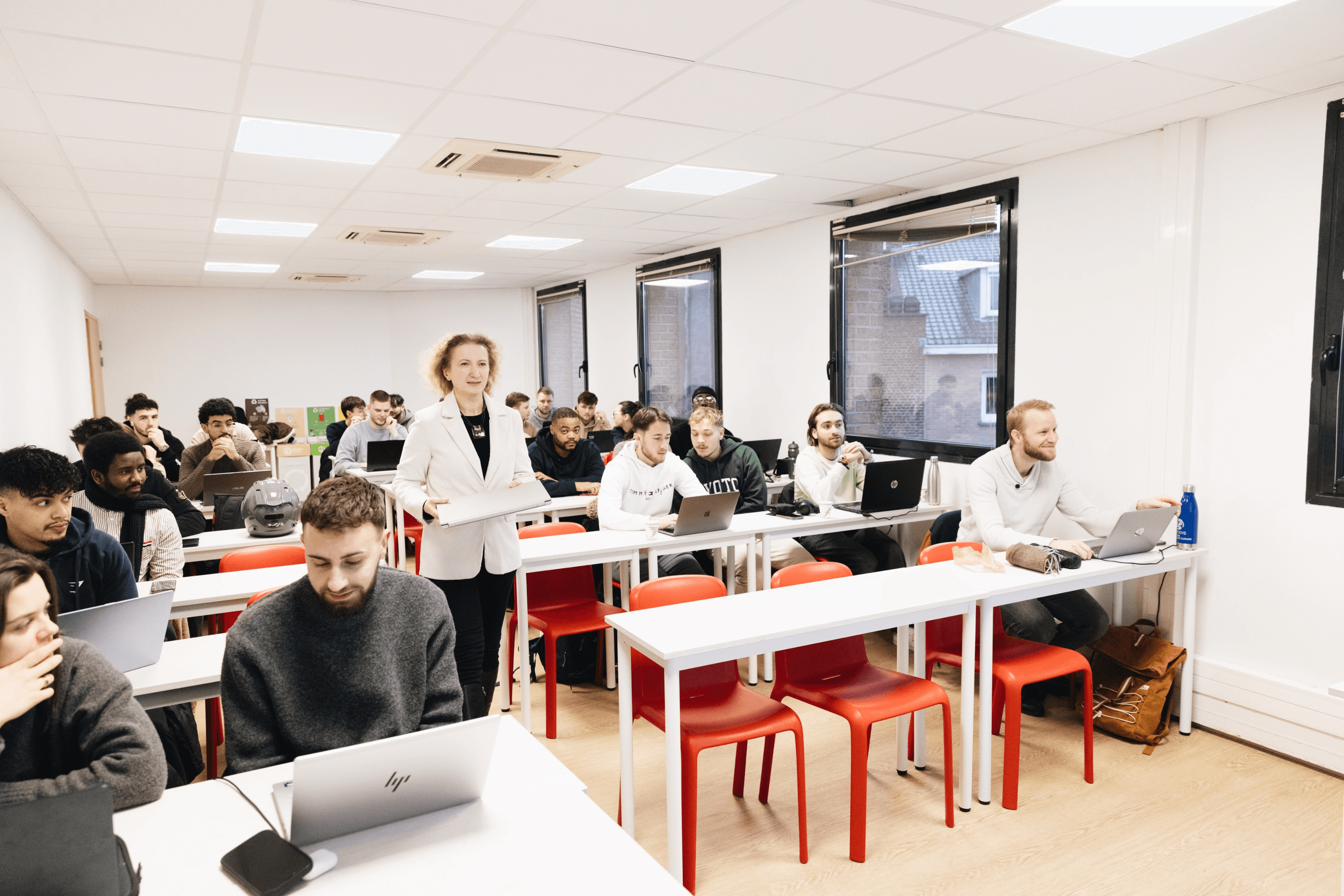Dmytro Ilchuk, a Kyiv native, moved to Toronto in 2018. He began his career as an intern at the Canada Revenue Agency, where he helped fellow Ukrainians navigate the country’s financial laws and organized English courses for Ukrainian children. Later, he joined Toronto’s municipal government as an analyst. During the pandemic, he worked at various aid centers, earning recognition from the Prime Minister of Canada for his contributions.
In 2022, Ilchuk enrolled at the Royal Military College of Canada, earning a master’s degree in public administration. Today, he serves as a senior analyst in a key municipal government department, leading a high-impact project team.
YBBP journalist Masha Zhartovska recently sat down with him to discuss integration in Canada, the realities of working in the public sector, the importance of volunteering and internships, learning English, and the distinct characteristics that set Ukrainians apart from other migrants.
Author’s note: Dmytro Ilchuk was born in Kryvyi Rih and moved to Kyiv as a teenager. Between 2015 and 2017, he traveled to Toronto as a volunteer. In late 2017, due to circumstances he does not wish to disclose, he lost his documents, remained in Canada, and eventually became a Canadian citizen.
Dmytro Ilchuk relocated from Kyiv to Toronto in 2018 after being invited for an internship at the Canada Revenue Agency. At the time, he already held a master’s degree in Economic Cybernetics from Kyiv National University and had gained experience in banking and supporting the Ukrainian Armed Forces.
Following his internship at the Canada Revenue Agency, Dmytro participated in several professional internships with prominent Canadian government organizations, gaining valuable local experience to support his professional growth.
Also, Dmytro joined volunteer teams of local professionals. He aimed to improve his English, build local connections, and earn recommendations and a professional reputation in the new country. He supported newcomers by assisting with tax filings, finding mentorship opportunities, and organizing joint projects with Canadians — one of which was the development of online English courses for Ukrainian children affected by the war. The project ran for three years and supported around 40 children. One of the teachers, Alfredo Garcia, received a volunteer recognition diploma from Euromaidan SOS, awarded by a 2022 Nobel Peace Prize winner Oleksandra Matviichuk, a head of the Center for Civil Liberties.
In his pursuit of finding a job, Dmytro actively engaged in multiple internships and mentorship programs, focusing primarily on Ontario’s public sector. A mentor from the municipal government encouraged him to apply for roles in local elections, which eventually led to opportunities at the provincial level.
At the end of 2018, after gaining initial professional experience and references from colleagues, Dmytro applied for the Chief Analyst Assistant role at the Toronto Municipal Court Services Office. The competition was fierce — around 1,500 applicants competed for just three positions. After two rounds of interviews and verification of his Ukrainian education, references, and professional background, Dmytro was offered his first six-month contract. At the end of the contract, he was promoted to a permanent Analyst position in the Department of Business Planning, Performance & Intelligence.
In 2020, as the COVID-19 pandemic unfolded, legislation directed public servants at all levels to assist critical services in responding to the crisis. Dmytro was assigned to senior assistance centres and later to temporary shelters for families in need of housing or isolation, where he worked throughout all waves of the pandemic, dedicating an overall 20 months to collaborating with healthcare workers and emergency response teams. In 2021, Dmytro’s efforts were recognized at the highest governmental level when his name was mentioned in the Canadian Parliament during a tribute to frontline workers, and Prime Minister Justin Trudeau personally sent him a letter of gratitude.
That same year, Dmytro completed his studies at the University of Toronto, earning a diploma in International Project Management. He also applied to the Master’s program in Public Administration at the Royal Military College of Canada. After successfully passing the competitive selection process, he was admitted in 2022.
Dmytro currently serves as a Senior Analyst in a prominent project team within one of the key departments of municipal government. In collaboration with his colleagues, he develops analytical reports and provides recommendations to assess the effectiveness of departmental services and government initiatives.
On Working in Ukraine and Europe
After graduating from university, I began my career in the banking sector, working on international markets. Through an exchange program, I gained two years of experience at banks in Germany and France before returning to Ukraine to work at a branch of a foreign bank. And in 2013, my support for the Revolution of Dignity led to me losing my job.
When Russia annexed Crimea in 2014 and the war began, my friends also joined the fight to defend the country. Sadly, a few close friends lost their lives in battles in the Donetsk region. Wanting to contribute, I became involved in the volunteer movement, mobilizing many people to address the urgent needs of volunteers and soldiers. Thanks to my connections in Ukraine and abroad, I managed to secure communication devices, clothing, equipment, food, and medicine, which I distributed to military units with the help of fellow volunteers.
In 2018, I embraced an opportunity for an internship and relocated to Toronto.
On the importance of education
While living abroad and engaging with locals who had successfully integrated into Canadian society, I came to understand how critical access to Western education is for remaining competitive on the global stage. I strongly encourage others to explore and leverage available internships, volunteer roles, mentorship programs, and educational opportunities that refine skills, improve language proficiency, and deepen professional knowledge. These are also excellent opportunities to adapt your resume to the local market, boost its competitiveness, obtain professional references, quickly build a reputation, and make valuable local connections and friends.
Enrolling in college or university programs, including postgraduate studies, offers significant advantages to professionals from any background.
On volunteering and internships
Volunteering and internships are excellent ways to quickly adapt to life changes in any country helping you effectively navigate the common challenges faced by most immigrants. Through volunteering, you can quickly understand diverse cultures, perspectives, work approaches, and ethics. You learn how to connect with others, contribute meaningfully, collaborate effectively, find compromises, and achieve shared goals.
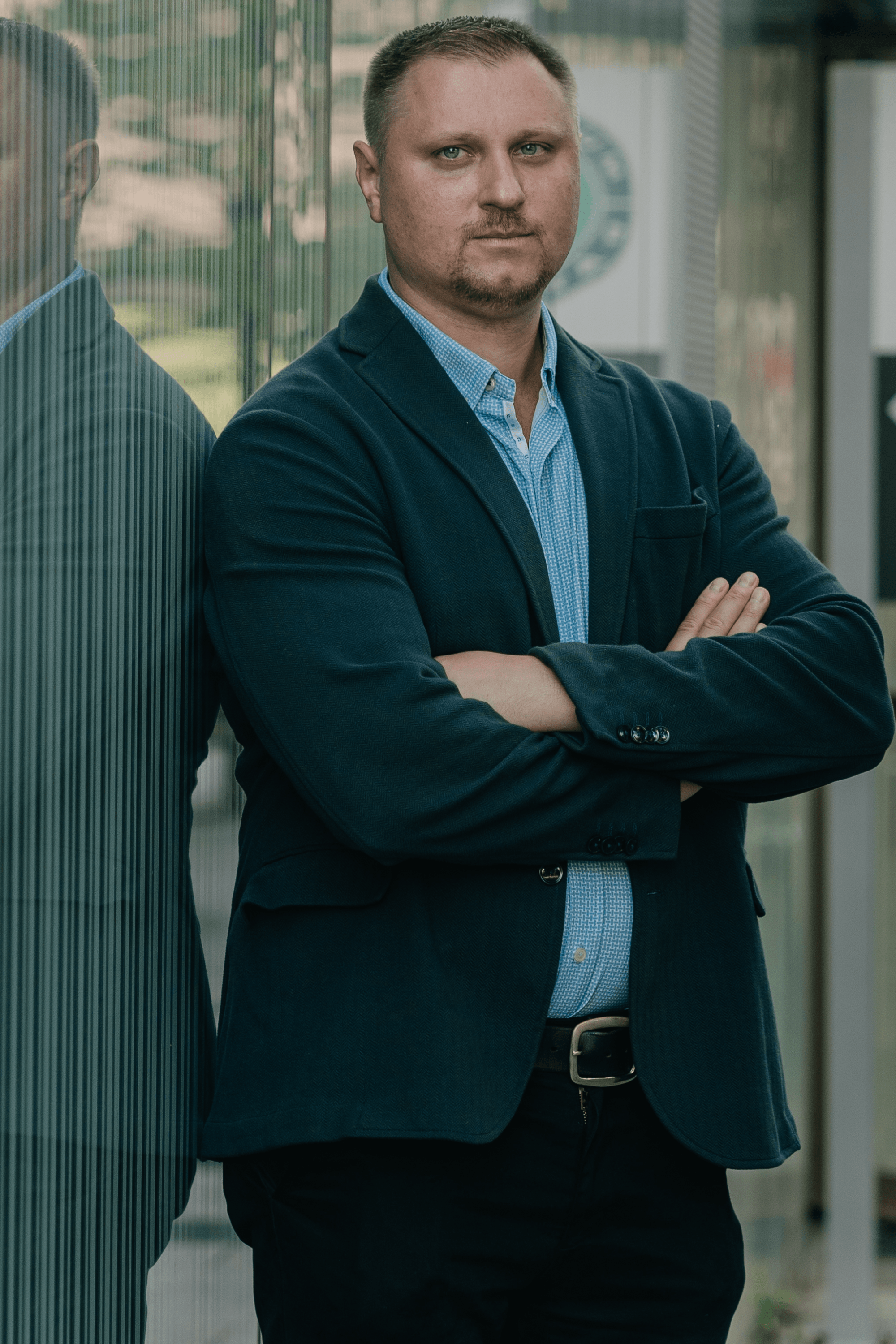
Here in Canada, employers value local achievements, professional engagement, and a commitment to continuous learning. They are often willing to fund your development because they are invested in the growth of their employees. By learning new languages, gaining internship experience, or volunteering, you build critical skills and hands-on expertise. These activities showcase your ability to grow and adapt, significantly boosting your employment chances and giving you a competitive advantage in the North American job market.
On learning English
At first, only Ukrainians could understand my English which I learned in Ukraine. To compete with local professionals, I had to work tirelessly on my language skills until I became fluent in English. A popular saying here is Fake it till you make it. So, I was just speaking English, not showing fear and insecurity, even though it was how I felt. I simply immersed myself in an English-speaking environment and engaged with native speakers on any topic. Thankfully, people here are generally supportive — they don’t criticize accents or point out mistakes, but appreciate your efforts to communicate.
Job interviews and case-based interview tasks in Canada and the US are quite unique and challenging. At first, I struggled to comprehend them, but through mentoring, role-playing exercises, and consistent self-improvement, each interview helped me refine my skills and reach a competitive standard. To gain even more interview experience, I applied to well-known companies like McDonald’s, Tim Hortons, and Procter & Gamble.
On integration
Often, the initial challenge for newcomers, including Ukrainians, is to figure out your direction and how to unlock your potential. I would advise to not undervalue yourself but position yourself as equal to people from other countries, as we all have the same initial opportunities. We are no less capable than those arriving from the US, France, or Spain. Your nationality doesn’t determine your professional growth, what matters is taking initiative and trying. You might face rejection ten times, but that one time, you might hear a “yes.” All it takes is one “yes,” and it will find you eventually.
Remember that a significant part of your success will rely on your efforts and actions in Canada. People here appreciate those who volunteer and contribute to personal growth as well as the well-being of the community. Besides your professional skills and knowledge, employers in North America prioritize teamwork and working with people who are collaborative and easy to work with. So, to integrate effectively, it is important to actively engage in community life: attend networking events, use mentorship opportunities, share your expertise and success stories, volunteer, and support others.
On mentorship
Mentorship is a highly developed means of professional development in North America. It proves to be an excellent way to meet new people, refine your skills, and connect with experts in your field.
I started exploring mentorship opportunities through programs offered by the municipal government and CultureLink, an organization that supports newcomers with resume building, interview preparation, and integration. Through these sessions, I met professionals from the Canadian Revenue Agency, the UN Office, banking institutions, and social support services. Being a mentor is quite common among Canada’s professional circles, and it’s considered important to support both locals and newcomers.
Banking, Canada Revenue Agency representatives and Toronto Municipal Government professional public servants shared their experience and the skills needed to excel in specific roles, and knowledge about internship opportunities. One-on-one sessions to help with refining resumes and interview practice were on offer as well. Through these meetings, I discovered more organizations offering similar events for newcomers. Although I didn’t receive any offers at first, I kept persistently searching for opportunities, and my efforts paid off. Eventually, I secured internships with a Toronto school’s administrative department, the Canada Revenue Agency, the UN Office, and a municipal councilor’s office, where I handled administrative tasks and consulted members of the public. This hands-on experience gave my resume the local credentials that most employers require.
Later, I started a part-time job at an English school for adult newcomers, supporting instructors in improving language skills for immigrants.
I also applied for a seasonal contract during Toronto’s local elections, where I met a city councilor’s assistant. Through this connection I got a weekend volunteer role in their office, consulting residents of the councilor’s area. I helped explain the councilor’s role, the issues they addressed, and how residents could submit requests. Canadian politicians are open-minded and proactive in engaging diverse communities with multilingual skills to better address constituent needs. This approach proves to work well, as people feel that their voices are being heard.
Volunteering and mentorship don’t have to take up all your free time. Think of them as an education that broadens your horizons. Only doing one to three days can provide invaluable experiences to help you progress. The key is finding organizations whose experience will truly be valuable and help you move forward.
While trying to navigate life in a new country, I also worked as a bartender, loader, and construction worker to make ends meet. But I didn’t want to survive and get stuck in survival jobs merely. My focus remained on professional growth and achieving my long-term goals.
On first full-time field-specific job
The councilor I worked with often held personal meetings with the team where he asked about our backgrounds and aspirations in Canada. I shared my story, my involvement in the Ukrainian volunteer movement, and my professional background, along with suggestions for improving our work.
At one of these meetings, I asked why I hadn’t been considered for a stable job. He replied that the barriers were in my head — limited English, lack of local experience, and no Canadian education. Also, he reassured me that Canada welcomes everyone living here legally and offered me a professional reference. He also advised me to apply for short-term contracts, even those as short as three months. He connected me with an HR manager at City Hall, who immediately responded to my LinkedIn message. She sent me job postings, instructions for crafting a proper resume, cover letter tips, and guidance on the application process. I followed her advice, shared my drafts with her for feedback, made revisions, and applied to several positions. I did land two interview stages for an Assistant Analyst role proving the counsellor’s advice was of great help.

The competition was intense — about 1,500 applicants according to the online application system. The first stage was a panel interview with several hiring team members where I was asked about my Ukrainian education, given an analytical task, and questioned about public service experience and activities in Canada. They also inquired about my local references, empathy, willingness to help others, and ability to handle confidential information.
I did my best to make a positive impression and advanced to the next round at Toronto City Hall. This stage was the hardest. I was among the top five candidates, we had 45 minutes to analyze data and produce a report with recommendations for improving public services within a set budget. I finished in 30 minutes and spent the rest of the time refining my work. A week later, I was invited to the final stage and asked for three local references.
Thanks to my previous work over just a few months, I secured strong references from the councilor’s office, a school, and the tax agency. I was so grateful that all referees gave excellent feedback when contacted, leaving a positive impression. The effort paid back and I was offered a six-month contract as an Assistant Analyst in the Court Services Department of the City of Toronto. The entire hiring process took four months.
The first month, I focused on learning the legislative framework and departmental policies. The team I joined analyzed police and court operations, prepared analytical materials, policy changes recommendations for the senior management team and evaluated departmental efficiency after six months. An Analyst position opened in my department. I applied, passed another competition and secured a one-year contract.
On career growth
A few months after my promotion and transition to a new position, the COVID-19 pandemic struck. Under Ontario Provincial Laws, public servants are the first to be called upon to support critical services during emergencies. We were all given a choice: leave our jobs or accept a reassignment to critical municipal services. Considering my experience managing uncertainty in Ukraine, I quickly chose the latter and joined the critical services team.
From April 2020 to the last wave of the pandemic, I worked alongside healthcare professionals and emergency response teams. To my surprise, this experience brought me additional recognition and respect — an immense honor and pride for me as an immigrant and a Ukrainian.
When the pandemic ended, I returned to my department, where I served as Acting Senior Analyst for Court Services Performance. Shortly thereafter, I successfully competed for the role of Lead Project Analyst in a newly established municipal government unit.
The team I joined also focused on analytics, performance evaluations, and managing various projects in energy, climate, and government environmental improvement programs. I was also fortunate to secure funding for my ongoing studies at the Royal Military College of Canada.
On working in public service
In Canada, like everywhere else, there’s always someone who criticizes the government. But unless you’re a part of the system, it’s hard to fully appreciate its operations, value, and the social priorities it serves.
In Western countries, public service is a citizen-focused service, the public often evaluates it in the same way they judge the quality of any other service. The key focus is on public benefit, not profit. Here, there’s no room for office power plays over positions or privileges. Instead, an individual’s value is based on their skills, values, and productivity. The system is solid and traditional, yet inclusive, respecting diverse perspectives, mentalities, and cultures equally. This is especially evident at municipal and provincial levels, where taxpayers closely monitor the work of public servants.
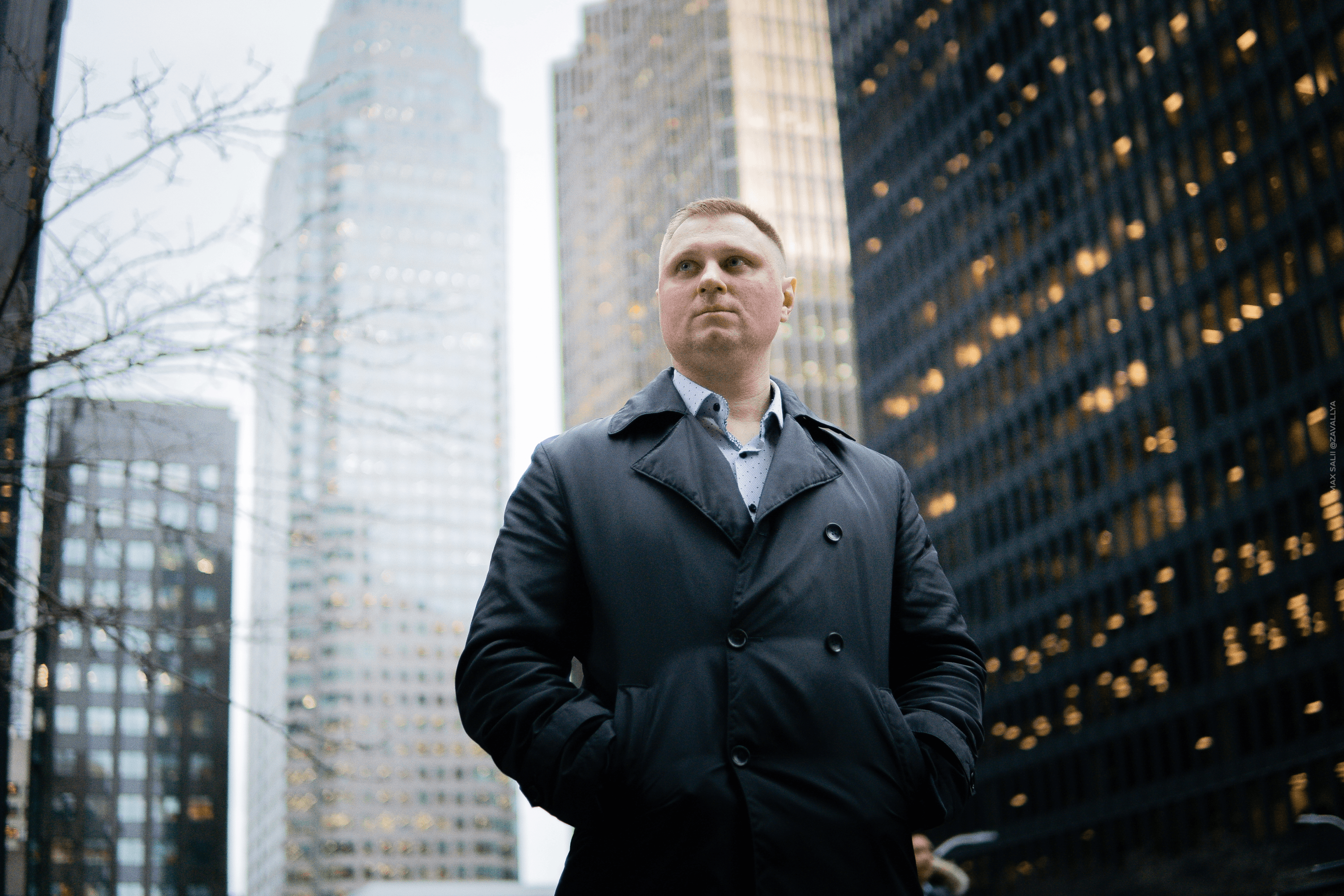
Take funding decisions, for example. While it might seem logical that money should go toward parks or swimming pools, the government prioritizes addressing the needs of vulnerable populations. Modern analytical tools and methods effectively highlight program priorities and weaknesses, identify current challenges, and guide the development of solutions to meet social needs across different levels of government responsibilities.
I currently work on a contract, which is standard practice. Contracts are renewed based on performance. In Canadian Public Service, almost all employees undergo annual competitive evaluations and assessments before contract renewal. Public servants are continually encouraged to participate in professional development courses designed to enhance qualifications and acquire specific skills based on annual evaluations. This ensures the government is aware of each specialist’s strengths and weaknesses and the need for professional growth. It helps maintain high standards for public services while continuously improving areas that need attention most.
On lessons learned in Canada
Living and working in Canada exposes you to hundreds of cultural and professional practices from around the world that can be borrowed, adapted, and applied to almost any aspect of life.
Here in Canada, I experienced fairness, equality, and recognition on both a personal and professional level, despite the incredible diversity of people, intense competition, and drive for success. Social rules and behavioral expectations are clearly defined in this environment.
Success in Canada depends largely on you and your efforts — your knowledge, skills, hard work, interactions with others, and willingness to add value and not about connections or schemes. It’s rewarding to work in an environment where success is the result of your work and not someone’s influence. Opportunities are available to anyone ready to work hard and grow.
Canada isn’t perfect, but it’s a dynamic and welcoming young country that attracts people from all over the globe who want to reinvent themselves. It’s a place for those with drive and motivation, where age is a starting point and not a barrier. My mother moved here in her 60s. Back in Ukraine, she was a teacher but earned very little. Through volunteering and mentorship programs, she gradually improved her English to a comfortable conversational level, then completed a college program, and now works at a Canadian company assisting elderly people. Her journey required great effort but was profoundly inspiring, not just for me but for everyone around her.
I know many stories of people of all ages and abilities with a strong desire to grow and develop, who grabbed every chance and achieved their goals. I’ve mentored many of them myself, including Ukrainians who came to Canada after Russia’s full-scale invasion of Ukraine. Their achievements and accomplishments deserve to be celebrated more often than their efforts criticized. It can be tough at times and there are moments when you want to give up everything and return home. But focusing on opportunities and moving forward is the key to success.
On adaptation challenges for Ukrainians
When people move away from their home countries, they tend to seize every opportunity, no matter how small, to settle in. Many immigrants, escaping dangerous or unstable conditions, view Canada as a fresh start, a chance to rebuild their lives and access opportunities of Western societies. Despite the challenges of adapting to a new country, they view Canada with all its flaws and benefits as a step forward and a foundation for their future.
Immigrants from post-Soviet countries, including Ukraine, often hesitate to take the same steps as other newcomers from around the world. For example, they may dismiss temporary jobs that don’t align with their qualifications, undervalue volunteering, underestimate the importance of learning the language of their new environment, or overlook the importance of further education for personal growth.
I’ve encountered cases where people from post-Soviet countries criticize the Canadian system without making an effort to understand it. They often try to apply the same behavior from their home countries to local communities, often with counterproductive results. They expect that achievements back home would guarantee recognition abroad and secure a similar societal status they had before. In Canada, however, everyone starts on equal footing, and success depends on individual progress. Here, it’s essential to prove your abilities in fair competition, as many immigrants do by recognizing their strengths and weaknesses.
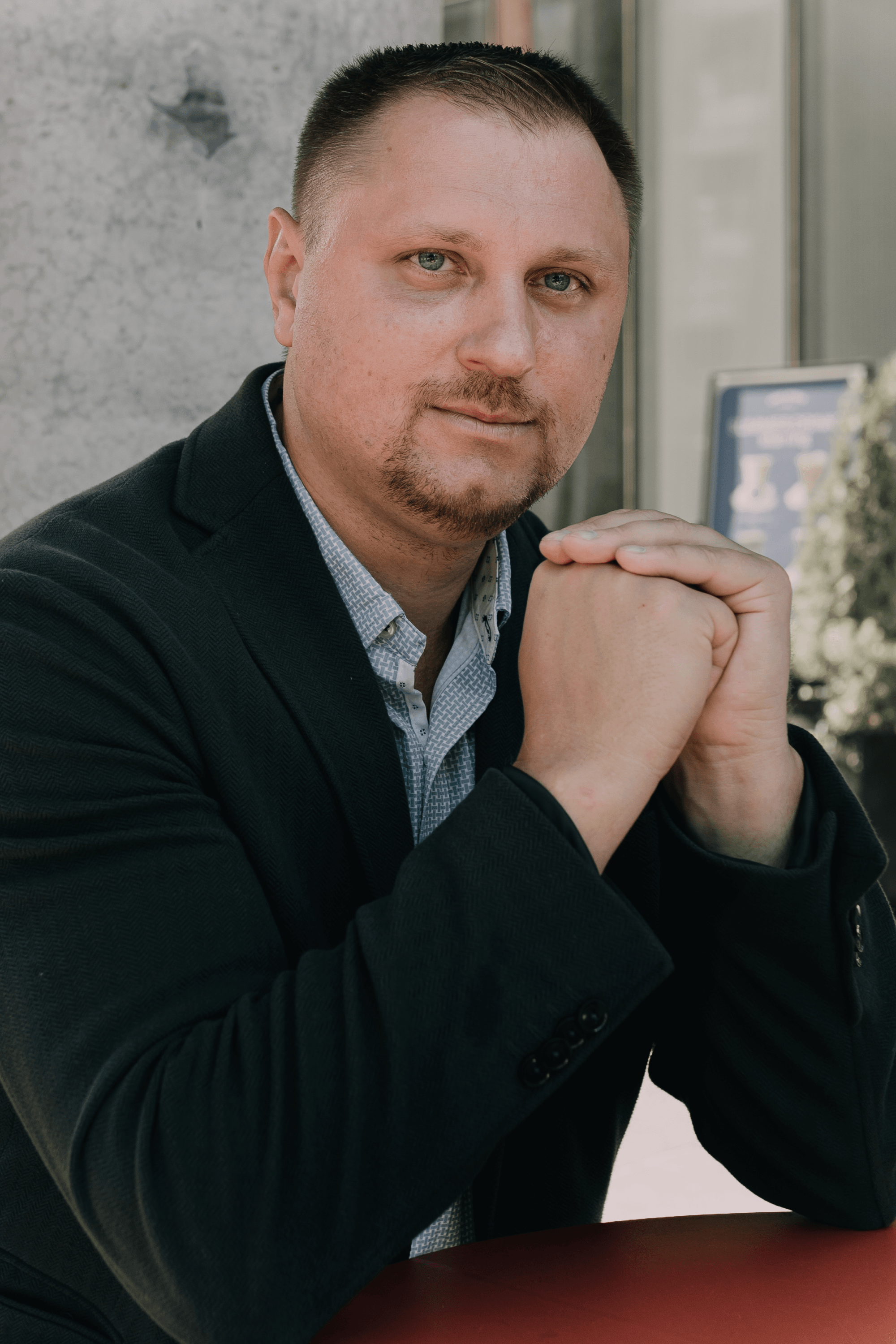
It’s crucial to start taking action from day one, as the time for newcomers is often limited by visa constraints ranging from one to three years.
The most important lesson I’ve learned in Canada is to focus on opportunities, choose those that align with your goals, and avoid wasting time on doubts or criticism. The key is to try, it highlights your strengths and identifies growth points. Most importantly, create a plan and move forward with no fear of mistakes. Mistakes are inevitable, but they are a part of valuable experience and indicate that you’re on the right path. Even landing your first stable job is a vital first step.
I also think that being in an English-speaking environment is essential for adaptation and learning from experienced local colleagues. Further on you can pursue further education and career advancement. Many newcomers from different countries embrace every opportunity, invest in themselves, and achieve remarkable success.
A strength that Canadians can learn from Ukrainians is their ability to adapt to crises and challenges. However, this resilience doesn’t always translate to every aspect of life abroad. Engaging with people who have entirely different life experiences and approaches can be quite challenging.
Sometimes Ukrainians in Canada give up at the first signs of difficulty, even though they have far greater support here than back home. Meanwhile, in Ukraine, they can overcome challenges and survive in the most difficult conditions.
Another trend I’ve noticed is that immigrants from other countries often choose affordable cities or provinces where it’s easier to secure legal status and find a first job, which gives them a smoother start. Ukrainians, on the other hand, often head to expensive and competitive cities like Toronto, Vancouver, Chicago, or New York. I’m a bit unsure why they choose such challenging environments where competition is fierce, and the cost of living is high. I believe these added challenges may prevent many talented Ukrainians from succeeding in the competitive environment right from the outset.
On opportunities to support Ukrainians
If you’re in a stable position, you can help others. But if you’re facing challenges, you must find stability for yourself before extending support to others. Ukrainians need to find a way to care for their families first, which will then give them the strength to take on broader initiatives.
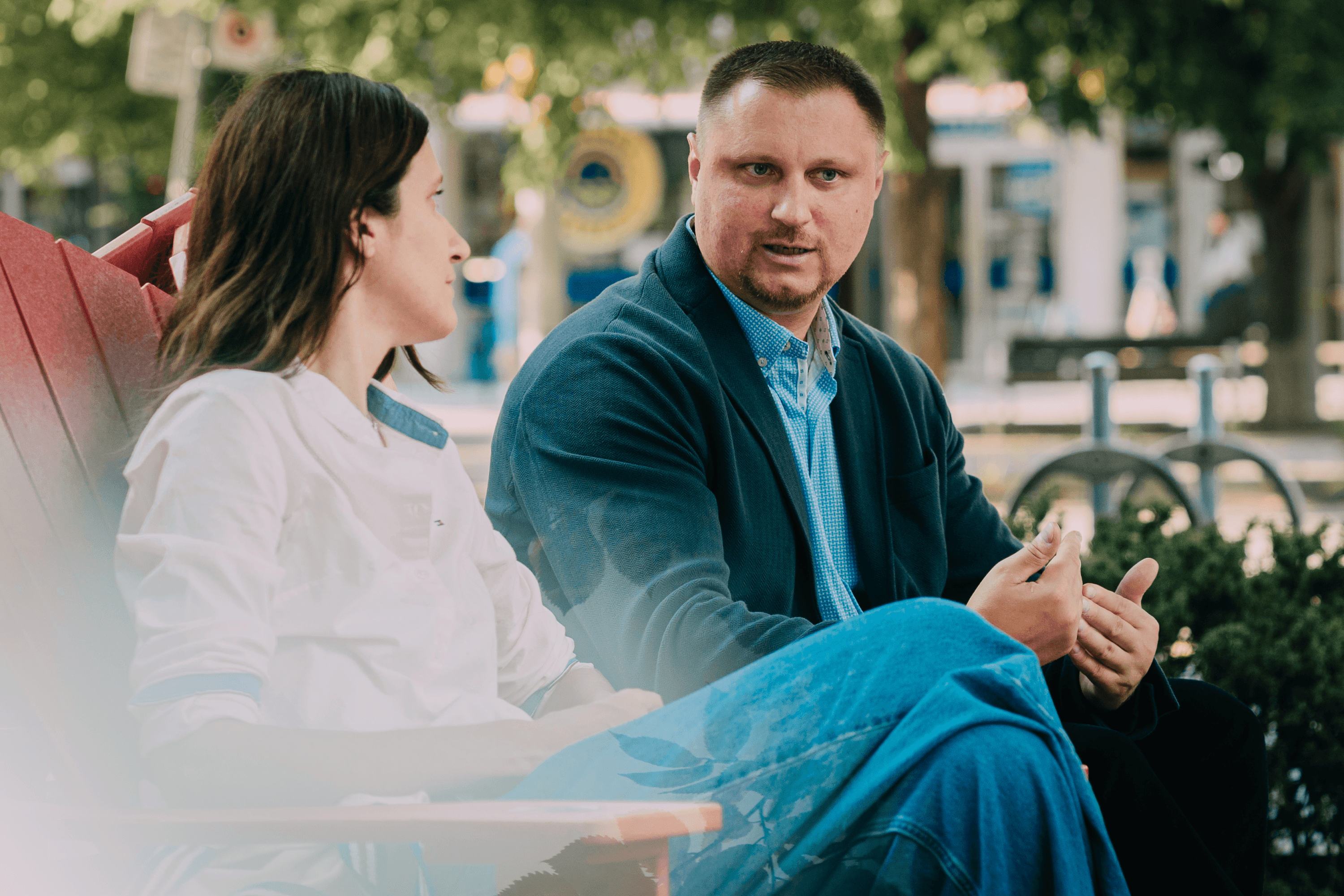
Those who came to Canada through programs like CUAET were offered a unique opportunity. However, not everyone managed to adapt. Some couldn’t understand the system, while others either failed or didn’t want to recognize the values of Canadian society that inspire so many other immigrants. This often leads to disappointment, and discouragement can stall progression. Without a vision for the future, it’s hard to find motivation for personal growth.
On the other hand, there are inspiring stories of people who arrived grateful for the chance to live in safety and took action to achieve their goals. I’ve witnessed many such examples and strongly believe it’s important to support those who actively pursue change and make it happen.
Many overlook Canada’s unique ability to preserve their cultural identity and values without breaking themselves, while simultaneously becoming a part of a Western society, where, their identity is valued and is an asset, a way to contribute meaningfully to their new environment. With this understanding, local connections can be engaged in meaningful initiatives related to the homeland of every person who has moved to and now lives in Canada.
I frequently take part in initiatives aimed at supporting Ukraine and newly arrived Ukrainians. My colleagues and friends, both in Canada and the US, also contribute. Interestingly, all my local contacts are eager to join these initiatives, likely because of my prior efforts to support communities in Canada. Together with my friends from Canada and the US, we’ve created an informal network dedicated to sharing ideas, contacts, and opportunities, which has already helped hundreds of people, including Ukrainians back home.
I continue working toward my second master’s degree, remain active in professional networking, connect the right people with one another, and continue seeking opportunities to turn ideas into meaningful initiatives for both Ukraine and Canada.
